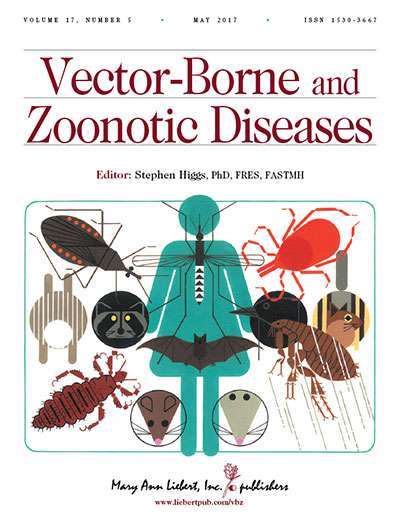Rising incidence of tick-borne Powassan virus infection in North America

Cases of human infection with Powassan virus (POWV), which can cause fatal neuroinvasive disease and long-term neurological effects, appear to be increasing in the United States. POWV is transmitted by Ixodes tick species found in North America. A comprehensive review of this potential emerging public health threat, the most recent research on the virus and its tick vector, and the diagnosis, treatment, and prevention of POWV disease is published in Vector-Borne and Zoonotic Diseases.
In the article "Powassan Virus: An Emerging Arbovirus of Public Health Concern in North America," coauthors Meghan Hermance and Saravanan Thangamani, University of Texas Medical Branch, Galveston, provide a detailed review of POWV and discuss the recent increase in cases, noting that it may indicate a true emergence of the virus in certain regions where the transmitting tick is particularly prevalent, or it could be due to increased POWV surveillance and diagnosis. Most of the cases in the U.S. have occurred in the northeastern and midwestern states. The authors discuss the history and geographic distribution of POWV and how it is transmitted. They provide an overview of the clinical disease caused by infection with POWV and offer recommendations for future research priorities.
"The recent increase in the number of reported cases of Powassan virus, which is the North American relative of several highly pathogenic Asian and European viruses, is very worrisome, especially given the abundance and distribution of potential tick vectors," says Stephen Higgs, PhD, Editor-in-Chief of Vector-Borne and Zoonotic Diseases, and Director, Biosecurity Research Institute, Kansas State University, Manhattan, KS.
More information: Meghan E. Hermance et al, Powassan Virus: An Emerging Arbovirus of Public Health Concern in North America, Vector-Borne and Zoonotic Diseases (2017). DOI: 10.1089/vbz.2017.2110



















